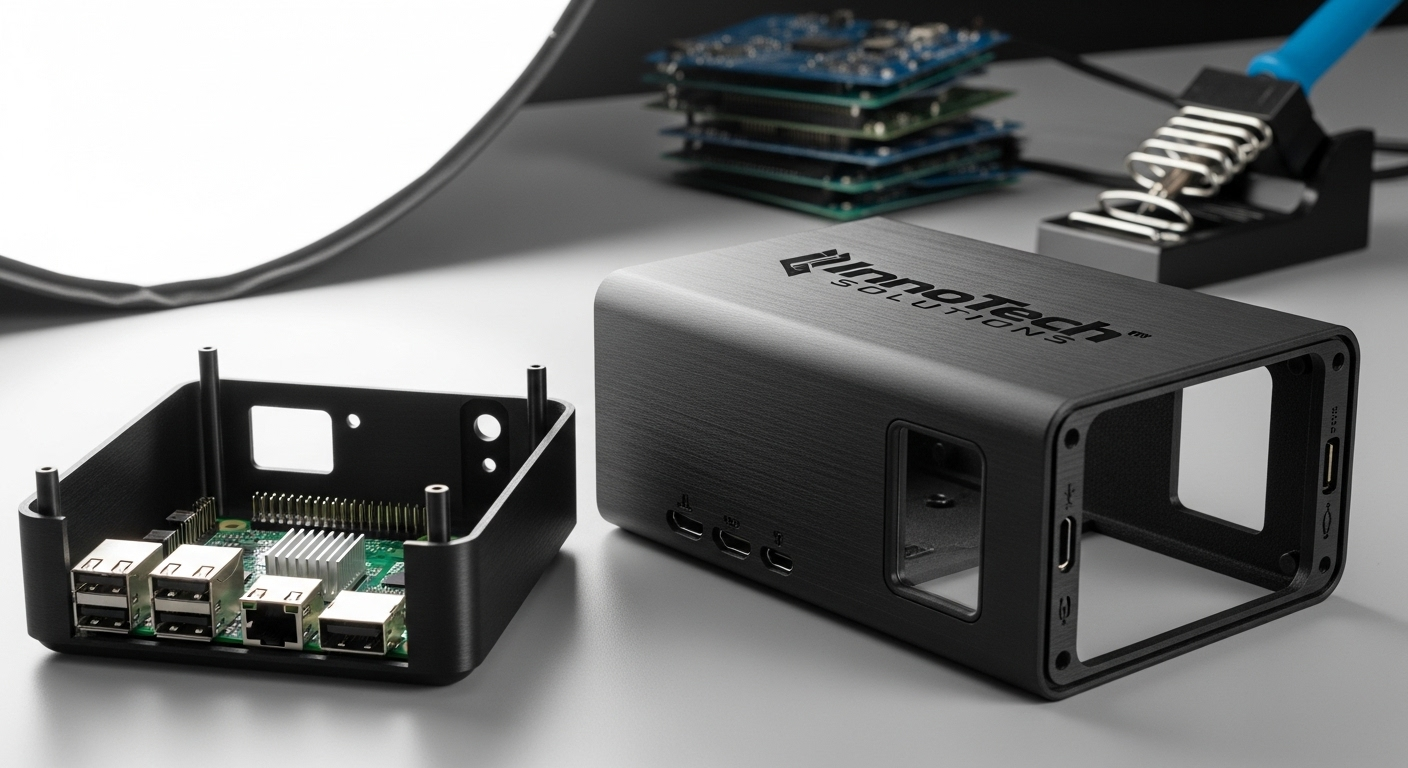
What Are Custom Plastic Raspberry Pi Cases?
Custom plastic Raspberry Pi cases are specially designed enclosures that house Raspberry Pi boards, offering protection and aesthetic appeal. These cases are tailored to fit the specific needs of users, whether for personal use, educational projects, or industrial applications. The demand for such cases has surged with the growing popularity of the Raspberry Pi, a versatile single-board computer used in various DIY and professional projects.
These cases not only protect the Raspberry Pi from dust, moisture, and physical damage but also allow for seamless integration into different environments. The customization options are virtually limitless, enabling users to choose from a range of materials, colors, and designs. This flexibility caters to both individuals looking for unique designs and companies seeking to align their Raspberry Pi projects with corporate branding.
Use of Eco-Friendly Materials
As environmental concerns become increasingly pronounced, the trend of using eco-friendly materials in manufacturing custom plastic Raspberry Pi cases is gaining traction. Manufacturers are now exploring sustainable options like biodegradable plastics and recycled materials to minimize environmental impact. This shift not only addresses the growing consumer demand for green products but also aligns with global sustainability goals.
For example, many companies are opting for bioplastics derived from renewable biomass sources, such as corn starch or sugarcane, which decompose more easily than traditional plastics. Additionally, recycled ABS plastic, a common material in electronics, is being used to create durable yet environmentally friendly cases. By choosing eco-friendly materials, you contribute to reducing the carbon footprint and promoting a circular economy.
Integration of Smart Features
The integration of smart features into Raspberry Pi cases is another significant trend in design and manufacturing. These smart cases enhance the functionality of the Raspberry Pi by incorporating advanced elements such as cooling fans, LED indicators, and touch screens.
- Cooling Fans: Ensures the Raspberry Pi remains at optimal temperatures during heavy processing tasks.
- LED Indicators: Provide visual feedback on the status of the Raspberry Pi, such as power and processing activity.
- Touch Screens: Allow for direct interaction with the Raspberry Pi, transforming it into a mini-computer with a user-friendly interface.
These innovations not only enhance the usability of the Raspberry Pi but also open up new possibilities for applications in various fields, from home automation to industrial monitoring systems.
Advancements in 3D Printing
3D printing technology has revolutionized the production of custom plastic Raspberry Pi cases, offering unprecedented flexibility and personalization. With 3D printing, you can create intricate designs and structures that were previously impossible or too costly to manufacture using traditional methods. This advancement has democratized the process, allowing even hobbyists to design and produce their own custom cases at home.
Manufacturers are leveraging this technology to produce small batches of highly customized cases, catering to niche markets and specific consumer needs. For instance, if you need a case with specific dimensions or features for a particular project, 3D printing allows for rapid prototyping and production without the need for expensive molds or tooling.
3D printing also enables quick iteration, so if the first design doesn’t meet your needs, adjustments can be made swiftly and cost-effectively.
Customization for IoT Devices
As the Internet of Things (IoT) continues to expand, the customization of Raspberry Pi cases for IoT applications has become a critical consideration. These custom cases are designed to accommodate the additional components and sensors often required for IoT projects, ensuring seamless integration and reliable performance.
For example, a Raspberry Pi used in a smart home system might require a case with extra space for wireless modules and antennae. Similarly, industrial IoT applications may need ruggedized cases that offer enhanced protection against harsh environmental conditions. Customization in this context ensures that your Raspberry Pi can efficiently interact with other devices and networks, fulfilling its role within a larger IoT ecosystem.
By opting for a customized case, you can ensure that your Raspberry Pi setup is not only functional but also optimized for the specific demands of your IoT project.
Common Questions About Custom Plastic Raspberry Pi Cases
What materials are best for Raspberry Pi cases?
While there are several materials available, ABS plastic and acrylic are popular choices due to their durability and ease of customization. Eco-friendly options like bioplastics are also gaining popularity for their sustainability.
Can I add smart features to a custom case?
Yes, many manufacturers offer cases with built-in smart features such as cooling fans, LED indicators, and touch screens. You can also modify existing cases to add such features.
How does 3D printing benefit custom case manufacturing?
3D printing allows for quick and cost-effective production of custom designs, enabling the creation of cases with unique shapes, sizes, and features without the need for expensive molds.
Conclusion
The trends in custom plastic Raspberry Pi case manufacturing reflect a broader movement towards sustainability, innovation, and personalization. Whether you’re an individual enthusiast or a company looking to deploy Raspberry Pi in a professional setting, these trends offer exciting opportunities to enhance functionality and align with modern design standards. By staying informed about these developments, you can make better choices when selecting or designing your Raspberry Pi case, ensuring it meets your specific needs and contributes positively to the environment.
